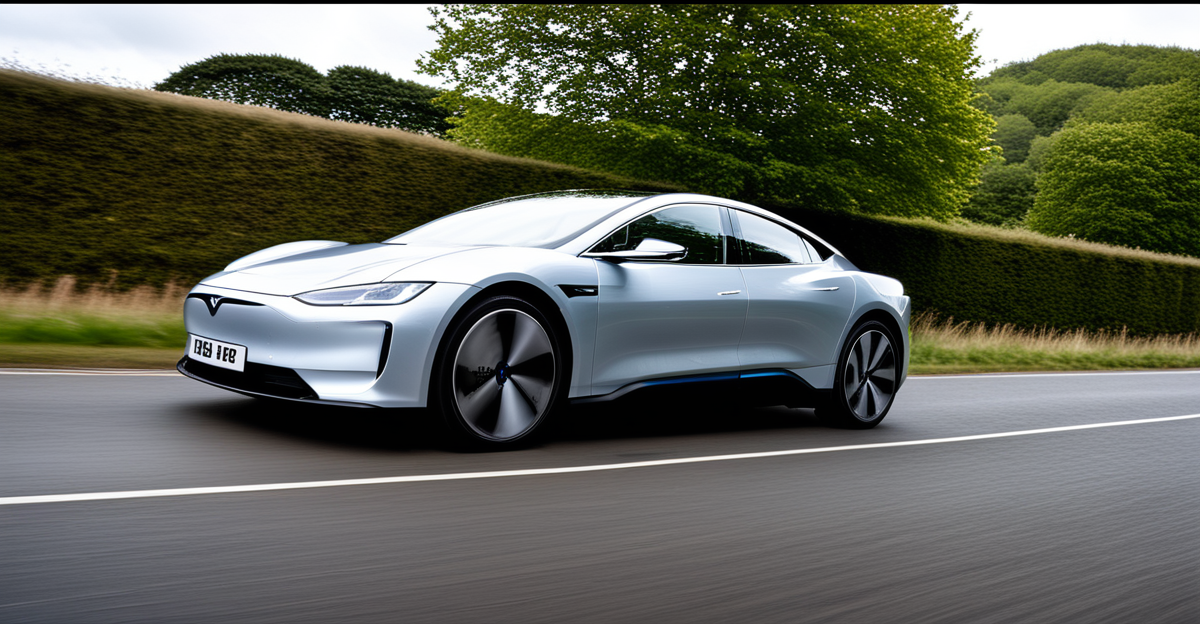Current State of Electric Vehicles in the UK
The UK electric vehicle market is experiencing rapid growth, driven by increasing EV adoption rates and expanding infrastructure. Consumer interest continues to rise with more affordable models and greater public awareness. The government’s commitment to banning new petrol and diesel cars by 2030 further accelerates this trend, positioning the UK as a major player in EV adoption among European countries.
Major manufacturers such as Jaguar Land Rover, Nissan, and Tesla have established significant EV presence in the UK, complementing emerging domestic startups focused on innovation. This competitive landscape fosters healthy industry growth while encouraging investment in research and development.
Also read : How Can Technological Advances Drive the Future of the UK Automotive Industry?
Government initiatives play a pivotal role, offering incentives like grants for electric car buyers and funding for charging infrastructure projects. The rollout of more public fast-charging stations and support for home charging installations address practical barriers, easing concerns over accessibility and range anxiety. Together, these efforts contribute to a robust and accelerating shift toward electric vehicles in the UK automotive sector.
Technological Advancements Shaping the Future
Technological innovation in EV technology is rapidly transforming the UK electric vehicle market. One of the most significant breakthroughs lies in battery advancements, which are extending driving ranges while reducing charging times and costs. These improvements directly address common concerns such as range anxiety and affordability, accelerating EV adoption rates across the UK. For example, the development of solid-state batteries promises higher energy density and enhanced safety compared to traditional lithium-ion batteries.
Also to read : How is the UK addressing the challenges of automotive cybersecurity?
In parallel, the evolution of smart charging infrastructure is crucial to accommodate the growing number of EVs. Smart chargers enable dynamic energy management, balancing grid demand by scheduling charging during off-peak hours or when renewable energy supply is abundant. This not only improves efficiency but also mitigates strain on the electrical grid, supporting a sustainable expansion of public and home charging points throughout the UK.
Furthermore, these technological advancements influence vehicle design by enabling lighter, more efficient models with integrated connectivity features. Manufacturers are increasingly adopting modular platforms tailored to electric drivetrains, allowing faster product development and adaptation to consumer needs. Collectively, innovations in battery technology, smart charging, and vehicle design set the stage for the UK automotive sector to lead in global EV competitiveness and consumer satisfaction.
Regulatory Landscape and Government Policies
The UK government EV policies are anchored firmly in the nation’s commitment to achieving net zero carbon emissions by 2050. A central component is the ambitious ban on new petrol and diesel car sales by 2030, which sets a clear regulatory framework driving industry transformation. This move significantly influences automakers to pivot towards electric vehicle production and accelerates adoption across the market.
Emission regulations now increasingly favor zero-emission vehicles, compelling manufacturers to advance cleaner technologies. The regulation forums actively monitor vehicle emissions and set progressively stricter standards to ensure compliance, supporting the environmental objectives embedded in broader UK climate goals.
Green incentives play a pivotal role in fostering EV uptake among consumers and manufacturers alike. The government provides grants to encourage buyers to opt for electric cars, substantially reducing upfront costs. Additionally, financial support for infrastructure, such as public fast-charging networks and home charger installations, complements these incentives by addressing practical barriers to EV adoption.
Brexit has introduced changes impacting automotive regulations and trade agreements, creating both challenges and opportunities. The UK now retains more control over automotive standards, allowing tailored EV policies that respond directly to domestic market needs. Simultaneously, it must negotiate trade terms to maintain supply chain efficiency and secure the import of essential EV components.
Together, this regulatory landscape and government policy framework establish an environment conducive to sustained growth in the UK electric vehicle market and steer the UK automotive sector toward a cleaner, technology-driven future.
Economic Impacts on Manufacturers and the Supply Chain
The shift to electric vehicles has a profound impact on EV manufacturing and the broader automotive supply chain in the UK. Traditional car manufacturing tends to rely heavily on internal combustion engine components, whereas EV manufacturing requires different parts such as batteries, electric motors, and advanced electronics. This fundamental change compels manufacturers to retool factories and invest in new technologies, affecting production processes and supply networks.
Workforce transformation is a critical challenge within the UK automotive sector overview. As EV adoption rates increase, there is a growing demand for skilled workers trained in battery technology, software development, and electrical engineering. Upskilling the existing workforce is essential to avoid job losses while creating new employment opportunities in advanced manufacturing roles tied to electric vehicle production.
Local suppliers are adapting by shifting focus to EV components, which reshapes the supply chain landscape. However, international trade remains a vital element, especially for sourcing battery materials and specialized parts. The interplay between domestic production capacity and global supply is crucial in maintaining a resilient manufacturing ecosystem.
Ultimately, the transition to EVs drives a redefined industry structure, with new jobs emerging alongside those phased out. Strategic planning for workforce development and supply chain adjustments is key to sustaining the vitality of the UK electric vehicle market and supporting the country’s leadership ambitions in automotive innovation.
Changes in Consumer Behaviour and Market Response
Consumer preferences in the UK EV consumer trends have evolved markedly with rising EV adoption rates, reflecting heightened environmental awareness and the appeal of lower operating costs. Many buyers are now prioritizing electric vehicles over traditional cars due to benefits such as reduced fuel expenses, government incentives, and improved vehicle performance.
However, adoption challenges remain prominent, particularly concerns about range anxiety and overall affordability. Despite advancements in battery technology and expanded charging infrastructure, some consumers still hesitate to switch to electric vehicles because of perceived limitations in driving range and charging accessibility. Addressing these issues through continued investment in public and home charging options and educating consumers about realistic vehicle capabilities is vital to sustaining growth in the UK electric vehicle market.
The automotive market response has been dynamic and innovative, with manufacturers and service providers adapting to changing consumer behaviour by introducing flexible ownership models. These include leasing programs that lower entry costs, subscription services offering hassle-free vehicle access, and mobility-as-a-service platforms that integrate EVs into broader transport solutions. Such models cater to diverse consumer needs and preferences, further accelerating market penetration.
Shifts in car ownership changes also reflect a trend toward shared mobility and urban-centric transportation choices. Younger UK consumers especially show interest in electric vehicles as part of sustainable lifestyles, supporting the long-term transformation of personal transportation. Overall, these evolving consumer patterns drive the industry to prioritize convenience, affordability, and environmental benefits in delivering future products and services tailored for the UK automotive sector overview.
Current State of Electric Vehicles in the UK
The UK electric vehicle market continues its rapid expansion, with EV adoption rates climbing steadily as infrastructure improves and consumer acceptance grows. Public and private investments have accelerated the deployment of fast-charging stations nationwide, addressing one of the most significant barriers to EV ownership: charging accessibility. This expanded infrastructure enhances convenience and reduces range anxiety, encouraging more drivers to consider electric alternatives.
Several major manufacturers anchor the UK’s EV industry. Companies like Jaguar Land Rover and Nissan have positioned themselves as key players, leveraging local production facilities and innovative designs. Tesla also maintains a strong market share, contributing to the sector’s diversity and competitiveness. Alongside these established firms, emerging startups inject agility and innovation into the UK automotive sector overview, driving advancements in battery technology and vehicle connectivity.
Government initiatives remain a cornerstone of market growth. The UK government offers grants and financial incentives to lower purchase costs, making EVs more attractive to consumers. Additionally, targeted support for home charger installations complements the expanding public network, facilitating widespread adoption. These combined efforts create a robust framework that sustains the momentum of EV adoption rates and cultivates a flourishing UK electric vehicle market poised for continued transformation.
Current State of Electric Vehicles in the UK
The UK electric vehicle market is marked by steadily increasing EV adoption rates, fueled by continuing improvements in infrastructure and expanding consumer acceptance. Public investment in fast-charging stations has been pivotal, addressing one of the key barriers—charging accessibility—and reducing range anxiety for prospective EV buyers. This infrastructure growth complements home charger subsidies, ensuring that drivers across different regions can confidently switch to electric mobility.
Major players in the UK automotive sector overview include established manufacturers such as Jaguar Land Rover, Nissan, and Tesla, each contributing to a diverse and competitive marketplace. Their local production capabilities and innovative electric models enhance the sector’s resilience and appeal. Alongside these, domestic startups bring fresh advancements that push battery technology and smart vehicle connectivity forward, fostering a dynamic ecosystem.
Government action remains essential in shaping this market trajectory. The UK government continues to implement targeted grants and financial incentives aimed at lowering the upfront cost of EV ownership. These schemes not only stimulate demand but also encourage domestic manufacturing and the roll-out of a comprehensive charging network. Collectively, these efforts create a supportive environment that sustains growth in the UK electric vehicle market and propels higher EV adoption rates, underpinning the broader vision for the UK automotive sector overview.



